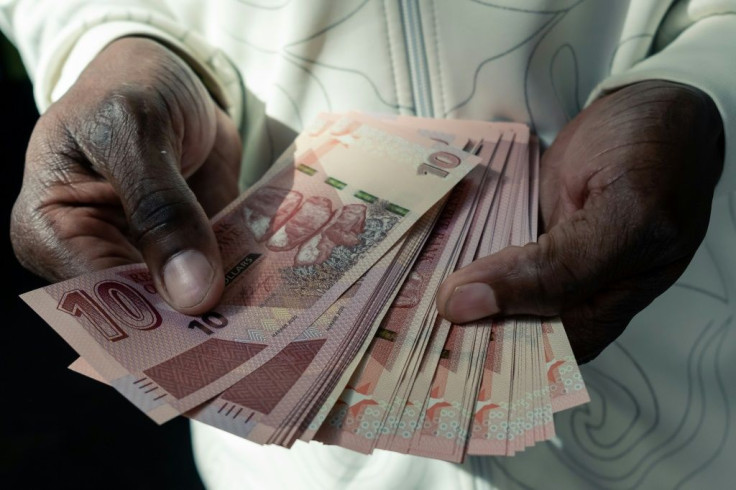Zimbabwe Halts Stock Trading, Transfers To Defend Currency
Zimbabwe's stock exchange suspended trading on Monday following a weekend government order that also forced mobile money transfer platforms to temporarily halt business as authorities tried to protect the country's currency.
As galloping inflation has ratcheted up tension, the Information Ministry permanent announced in a surprise statement late Friday the immediate suspension of trade on the ZSE and transfers on mobile money platforms that are key to retail trade.
Information Ministry Permanent Secretary Nick Mangwana blamed mobile money transfer platforms for causing a gap between the market exchange rate for the Zimbabwean dollar and the official exchange rate.
He said government was in "possession of impeccable intelligence ... whereby mobile-based phone systems... are conspiring with the help of the Zimbabwe Stock Exchange -- either deliberately or inadvertently -- in illicit activities that are sabotaging the economy."
He singled out one service provider as "the central pivot of the galloping black market exchange rate therefore fuelling the incessant price hikes of goods and services that are bedevilling the economy and causing untold hardship to the people of Zimbabwe."
Zimbabwe Stock Exchange (ZSE) chief executive Justin Bgoni then said "whilst we await guidance from our regulators on the operational modalities going forward, we notify out stakeholders that trading has been suspended until further notice".
The dramatic move to shut the stock exchange and limit mobile money payments is "disturbing" according to economists.
"This is one more nail in the coffin for the economy and again no one can predict the long-term impact," said Professor Tony Hawkins of the University of Zimbabwe.
"It's going to cause uncertainty and negatively affect investor confidence. It means for those who have been using the stock exchange to secure their Zimdollars by buying shares, this is has been closed up," said Hawkins.

In the meantime, the central bank issued a statement that said mobile money transfers had not been completely blocked, but capped at the equivalent of just about US$87 per day.
It said "these unprecedented measures have been necessitated by the need to protect consumers on mobile money platforms which have been abused by unscrupulous... individuals and entities to create instability and inefficiencies in the economy."
But the latest announcements have added confusion to an already restless population in the crisis-ridden country.
The government order targeted in particular mobile money transfer agents who took in and paid out cash.
"For some people being a mobile money transfer agent was a means of livelihood though the commission they were getting from service providers so these people are going to find themselves with no income if that was their sole source of income," said Beavan Chirime, a Harare resident.
Zimbabwe is being buffeted by its worst economic crisis in over a decade, including scarcity of basics like fuel and cornmeal.
Prices of basic goods shoot higher every week as the value of the Zimbabwean dollar continues to tumble, pushing official annual inflation to 785.6 percent in May.
Last week the price of fuel went up by 152 percent after the central bank relaunched foreign currency auctions last held 16 years ago.
The price of bread has trebled in recent weeks.
Poverty is deepening among the majority of the population -- UN aid agencies say some 7.7 million people, or half of the population, require food assistance.
"The Zimbabwe economy right now is at rock bottom because you are having a situation where prices, inflation is galloping very heavily and they (authorities ) failing to rein in inflation," said Daniel Dhlela, independent economist with Zimconsult.
© Copyright AFP 2024. All rights reserved.




















